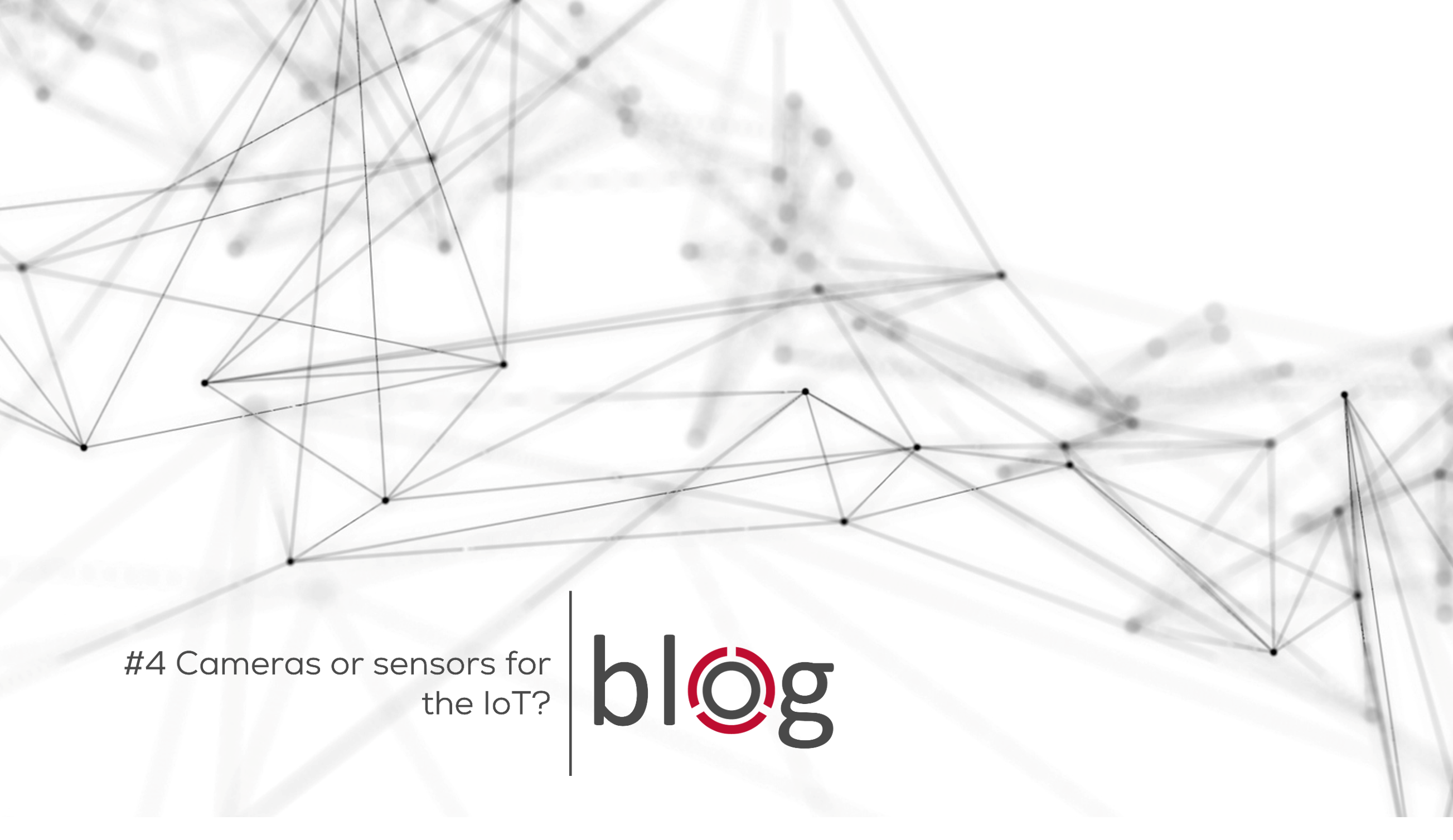Cameras or sensors for the IoT?

Today’s blog post is all about the Internet of Things (IoT) and what companies need to look out for when implementing it. Today we present two selected systems with their respective advantages and disadvantages. These are the camera-based and the sensor-based system.
The Internet of Things (IoT) is ubiquitous. Machines, computers, cars, people and networks are now wirelessly connected everywhere. Part of the “Internet of Things” can be anything that can transmit data to a network with an IP address. IoT systems are mostly fully automated and function entirely without human intervention by means of sensors or cameras, which play a supporting role.
Sensors capture data from the environment and collect it so that the captured data can later be processed and analyzed. Cameras, on the other hand, are responsible for machine vision. With the help of artificial intelligence, the captured images from the camera can be evaluated, identified and further processed. In this way, companies succeed in increasing efficiency and revenue through automation.
Sensors are essential in today’s businesses
Sensoren sind Geräte die Veränderungen in der Umgebung erkennen und auf diese reagieren. Dabei können die verschiedensten Daten von Quellen wie Licht, Temperatur, Druck oder Bewegung stammen. Angeschlossen an einem Netzwerk, können sie die Daten und Informationen mit anderen Geräten und Systemen austauschen. Für Unternehmen sind sie eine Möglichkeit, frühzeitig vor potenziellen Problemen zu warnen, Wartungen durchzuführen oder Ausfälle komplett zu vermeiden. Außerdem können gewonnene Daten auch Unternehmen bei der Entscheidungsfindung helfen.
Cameras in the IoT
Cameras have a key advantage in the IoT: they do not require physical contact with the objects they monitor. In addition, cameras can be implemented independently of the existing IoT system. Depending on the application, it is usually more cost-effective and efficient to use a camera.
Camera-based system vs. sensor-based system
The two systems can be compared in categories such as data protection, costs and lighting conditions.
Analog objects such as relays or switches can thus be monitored very precisely with intelligent cameras. In addition, high investment costs must be expected. From initial investment costs to operating costs and ongoing maintenance costs, this adds up to a sum that must be taken into account at the time of purchase.
Since this system depends on cameras, data protection plays a major role. After all, the cameras can record people within a factory environment, which could lead to privacy issues. With a camera-based system, additional attention must be paid to lighting conditions during installation, as this is the only way cameras can provide reliable data.
In contrast to the camera-based system, the sensor-based system is more difficult to integrate afterwards. There are usually investment costs for personnel and equipment.
Due to the variety of sensors, each company can choose the perfect sensors to meet their specific needs. From temperature sensors, to humidity sensors, to infrared sensors, the selection is vast. Depending on the sensor type, the sensor can ensure maximum precision and reliability.
Accordingly, the choice of sensor or camera-based system always depends on the individual use case. Nevertheless, both systems offer many advantages and opportunities for the automation of e.g. production processes, machines and plants.
New potential for companies
The Internet of Things offers many advantages for companies: Companies can reduce operating costs, optimize business processes and resource utilization, and automate processes.
For the realization of IoT projects, IT experts, gateways, sensors or cameras and a backend / cloud architecture are necessary.
Once the data is in the cloud, it can be analyzed decentrally and made accessible to the user via a mobile app. In addition, the data can also be connected to the local ERP system.
Do you have a product idea and are looking for a competent implementation partner for the digital transformation of your company? Do not hesitate and contact us via our contact form or book an appointment directly – together we will find the optimal solution for your company.
Sind Sie bereit mit uns den
nächsten Schritt zu gehen?
Nehmen Sie jetzt mit uns Kontakt auf und lassen Sie uns gemeinsam das volle Potenzial der Digitalisierung nutzen.
trescore GmbH
Burtenbacher Str. 12
86505 Münsterhausen
0 82 81 - 50 899-40
info@trescore.de


